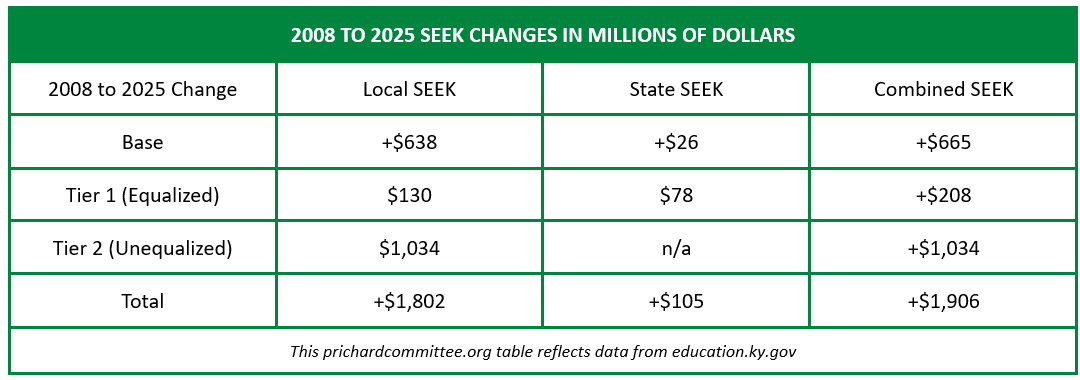On Election Day, Kentucky voters will be asked if they approve amendments to the commonwealth’s Constitution in no less than seven areas. If voters approve Amendment 2, which would allow public tax dollars to be directed to private and parochial schools, the Constitution would no longer provide protections for the separation of church and state, would no longer provide protections for tax payer dollars to be used only for public purposes, and would remove the protection that the General Assembly be prohibited from targeting specific areas of the state with legislation. Passing Amendment 2 will result in significant changes to Kentucky’s long-standing, foundational documents, and have far-reaching, likely negative, implications.
Regarding education specifically, voucher programs, which could be funded under Amendment 2 and are referred to nationally as “school choice,” have consistently failed to demonstrate significant improvements in student test scores. Worse, as states have moved from targeted “school choice” programs to more universal state approaches, outcomes for students have declined. Kentucky cannot afford investment strategies that show not only no positive return – but, in fact, show a negative return.
Further, Kentucky’s public schools operate under uniform accountability standards, ensuring that all students receive measurable, data-backed educational improvements. While public education has a way to go to ensure strong outcomes for all students, private schools offer no accountability for the public dollar – leaving taxpayers in the dark about educational quality and outcomes – and the return for our shared investment.
Should Amendment 2 pass, it poses a significant financial threat to the state and to public education. As seen in other states like Arizona and Florida, voucher programs lead to ballooning state costs and divert crucial funds away from public schools. In Arizona, voucher spending soared by 270% over 11 years, resulting in cuts to critical public services such as water infrastructure and community colleges. It’s important to also note that the overwhelming majority of vouchers – 65-90% – go to families currently sending their children to a private school or planning to do so. What this suggests is that “school choice” is little more than a transfer payment – out of the General Fund - to the wealthiest in our state.
With the current landscape of private schools, Amendment 2 threatens to deepen the rural-urban divide. Over half of the state’s private schools are concentrated in just three counties—Jefferson, Fayette, and Kenton—while many rural areas have no private school options at all. As a result, legislation passed, following a constitutional amendment, could create an unregulated market for privatized education, with little more than a profit motive. Research shows that such schools heavily market to families and then 25% close within five years, with a full 50% closing within 15 years. And since most voucher programs are set up to only cover a portion of tuition, families struggle to pay the balance out-of-pocket and are often left returning to their public school. Again, vouchers often act more like a wealth transfer to high-income families than a way to give more families more choices.
To illustrate the point above, I offer a quick back of the envelope calculation: There are 604,000 Kentucky students in public K-12 and 76,000 in private K-12. The total state spending per pupil for public education is roughly $6,000 a year. If families of 50,000 current private school students (two-thirds) access a voucher in the amount of $6,000, that’s $300 million dollars out of the General Fund - with no change in the delivery of education, no expected improved outcomes as a state, and increased spending by the state that has to come from somewhere – likely a combination of decreased funding for public education and increased taxes down the road.
Amendment 2 presents a false promise of improved education outcomes and instead would prove to erode Kentucky’s commitment to education as a public good – instead, converting education to a private good with winners and losers. Instead of improving outcomes for all students, it risks destabilizing the state’s progress in education, deepening the divide between “haves and have nots”, and placing an unsustainable financial burden on taxpayers.
Amendment 2 is a race to the bottom, brokered by national interests and not the interests of Kentuckians. It’s a race Kentucky should refuse to submit to.

Brigitte Blom
President & CEO
The Prichard Committee for Academic Excellence












